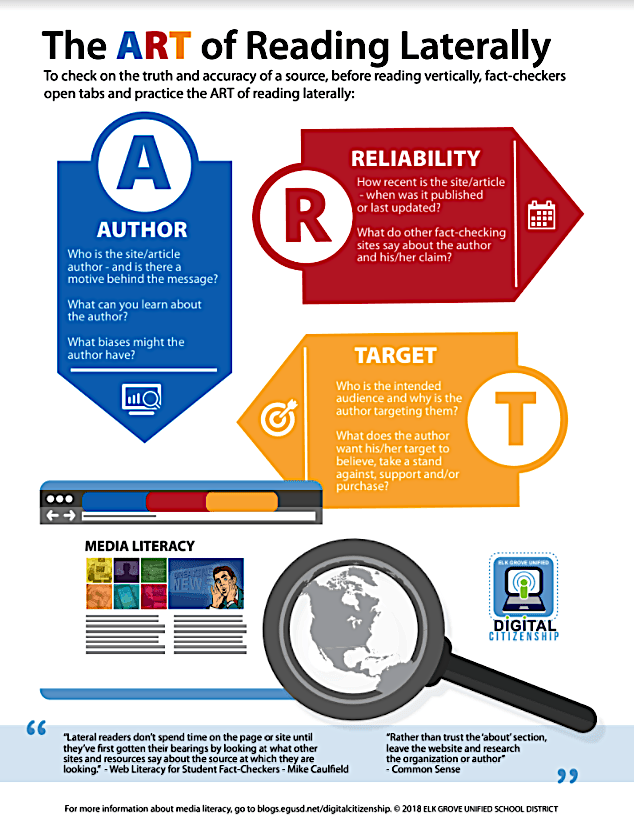Why evaluate websites?
When searching for information on the "free web," you need to be critical. Here are a few reasons:
- On the "free web," anyone can post information, which can be unreliable and inaccurate.
- The amount of information online can be overwhelming; there are currently more than 357 million websites in existence.
- When searching the web, you get A LOT of results, many of which may not be relevant.
- Many websites may have an agenda, or may be trying to sell you something.
- Search results bring varying results, only some of which may be relevant for your research.
- Scholarly sources are usually not available on the "free web." They are located primarily in library databases. ** See Get Started with Research tab.
Check Yourself with Lateral Reading
Evaluating Evidence
What about Wikipedia?
Wikipedia is a free, online encyclopedia that contains articles about nearly any topic. It may be tempting to use it as a resource for an assignment, but keep in mind that most instructors WILL NOT accept Wikipedia as an acceptable source. Why? Wikipedia entries can be edited by anyone that has access to a computer and creates a Wikipedia account. This often compromises the quality of information that may appear in Wikipedia entries. The last thing you want to do is to use false information in your assignments.
So what do you do? Use Wikipedia as a starting point for your research, but, if you want to use information from it, try to verify it in another reputable source instead.
